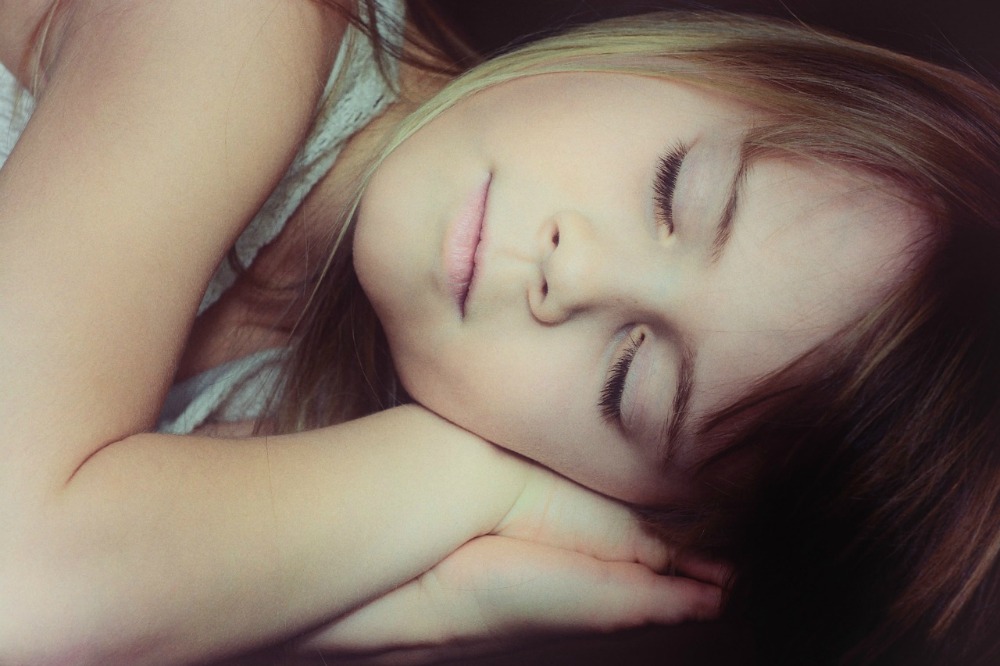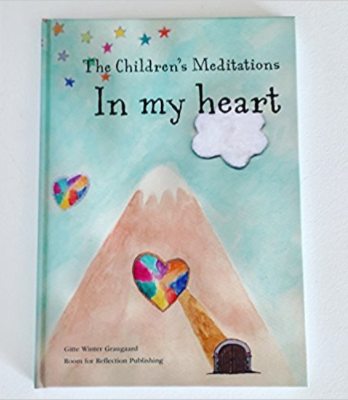Our children are growing up in a different time age. The digital age is so much faster and louder than what we had to cope with when we were kids.
Now more than ever children are bombarded with impressions, messages, expectations which when coupled with the casualties of modern living, over-scheduling and long school days, can greatly impact on their mental wellbeing. And today sadly more children than ever before suffer with stress, depression, anxiety and sadness.
One hour less sleep.
Sleep, or rather the lack of it, is one of the first indications for parents that something might be off kilter.
Just like adults – or maybe even more – children are just as susceptible to the pitfalls of a stressful day, and more and more lie awake at night, unable to ‘switch off’ and with racing thoughts. Worry is often an overriding factor, and many have a hard time letting go.
In general children today sleep one hour less than we did 25 years ago. Like adults, sleep problems in children tend to have a knock-on effect, often manifesting in irritability and lack of focus at school. And having a child who can’t fall asleep is also very exhausting for parents.
Why children can’t sleep.
The world we show our children is spinning so much faster than the one our parents showed us. It is said that a child today receives as much stimulus in one day, as their great grandparents did in an entire year when they were children. Of course, this is a generalisation but think about it for a moment.
The best way to teach our children how to navigate is to remember to navigate ourselves. The human race is not meant for ongoing activities. We are meant to use energy and then rest to refuel. But we seem to have forgotten about the resting part. Hardly surprising then that so many parents also have trouble sleeping.
We need to equip our children with these resources to enable them to deal with all that society has to throw at them, the constant overload of information and messages, and to help them to recharge.
We can’t stop development and we cannot change society overnight. What we can do however, is teach our children how to navigate in the hasty world they are growing up in. Children really need their sleep and we can teach them methods to calm down and find the peace needed to be able to let go.
How meditation can help.
When my girls were 3 and 6 I started sharing beautiful heart meditations with them and they loved it. And I was so surprised to see how quickly they would fall asleep.
As different as children are, almost every child delights in hearing love and heart energy which many meditations offer. Learning how to turn up their self-love can give children so much comfort that they relax and fall asleep.
A recorded guided meditation can be a good place to start if you are not yourself familiar with meditation. However, I recommend that you always sit with your child and listen along if you decide play a meditation for your child. Your presence is very important. Too often I hear that parents leave the room to go fix something else, while the child is listening to a meditation. The outcome of the meditation if you stay and lie down with your child and relax is so much better. If your older child insists that you leave the room, that would be okay, but a younger child would most likely want you to stay.
How to best guide your child to meditate.
Even better is reading a meditation to your child yourself. Order a book with child meditations or go to your library. When you read the meditation to your child, your energy helps the child a lot and your guidance makes your child feel safe. To your child no voice is sweeter than yours, because it comes along with all that you are and all that you radiate.
If you decide to read a meditation to your child at bedtime, becoming aware of your energy as a parent is crucial. Reading meditations when you can be present, loving, and calm at bedtime, can help your child to find inner peace, love and even self-love. Here’s how to do that:
- Pick a time when you feel good, and have the energy to help your child deal with a new method of falling asleep.
- Turn off all screens two hours before bedtime, including your own.
- Slow down the last hour before reading.
- Maybe even give – or let your child take a warm, relaxing bath. Even better – end the bath with a gentle massage with a nice oil.
- Stay calm and loving in your energy even if your child has difficulties with the new method. Your energy, mood and way of communicating with your child highly affect how quickly he/she calms down. You can read even begin by reading one of your child’s favorite books, so the new meditation book becomes an add-on.
- Lay down next to your child and show him/her you have time to read the book in a calm and cosy way. Snuggle up. And if you fall asleep yourself, that might be just what you need! Listen to what your body is telling you.
- Stay calm, loving even if your child doesn’t want to close his eyes or moves around. There is no right or wrong way to meditate. When children begin to breathe and shift their attention to their body, which many guided meditations will teach them, it is naturally that they want to move around a bit. For some kids closing their eyes can be a bit of a challenge. Just ask them to stare at a specific spot in the room until they are ready to close their eyes. Invite them gently into the meditation.
- Speak in a calm, loving voice and remember to take pauses.
- In the days after the meditation you can talk to your child about the experience. Listen to your child – there is a lot to learn.
- Encourage your child to draw – or write about the images or feelings he/she sees or experiences during meditation.
Enjoy the ride when meditating with your child. My experience is that many children have a much easier time meditating to their hearts than adults. And in many ways children can help parents turn up the love for themselves as well.
♥ ♥ ♥ ♥ ♥ ♥
‘The Children’s Meditations in My Heart’
Seeing the positive effect my stories with meditation had on my own children made me write down the meditations for friends who were wondering what my secret was. When the meditations also helped my friends’ children to sleep, I decided to turn the meditations into a book, which is now sold in 14 countries worldwide, and helping thousands of children to fall asleep. The book has also proven helpful for many children with special needs.
The Danish bedtime meditation book “The Children’s Meditations In my Heart” can be ordered as a PDF, kindle version and/or hardcover. Find more details at www.roomforreflection.com
About the Author: Gitte Winter
 Gitte Winter, is a Danish writer, life coach, energy mentor, mindfulness instructor and lightworker (Roomforreflection.com). She is on a mission to help parents help their children to thrive through child meditation. Gitte helps parents become aware of their energy and what they radiate and teach parents to always parent themselves first before they parent their children. Gitte is also the founder of Momo Academy (www.momo-academy.com) with a mission to help Danish schools offer mindfulness to the pupils as part of their education. She also coaches parents and do workshops. Check out the blog at Room for Reflection and Facebook for the latest news on child meditation and mindfulness.
Gitte Winter, is a Danish writer, life coach, energy mentor, mindfulness instructor and lightworker (Roomforreflection.com). She is on a mission to help parents help their children to thrive through child meditation. Gitte helps parents become aware of their energy and what they radiate and teach parents to always parent themselves first before they parent their children. Gitte is also the founder of Momo Academy (www.momo-academy.com) with a mission to help Danish schools offer mindfulness to the pupils as part of their education. She also coaches parents and do workshops. Check out the blog at Room for Reflection and Facebook for the latest news on child meditation and mindfulness.




